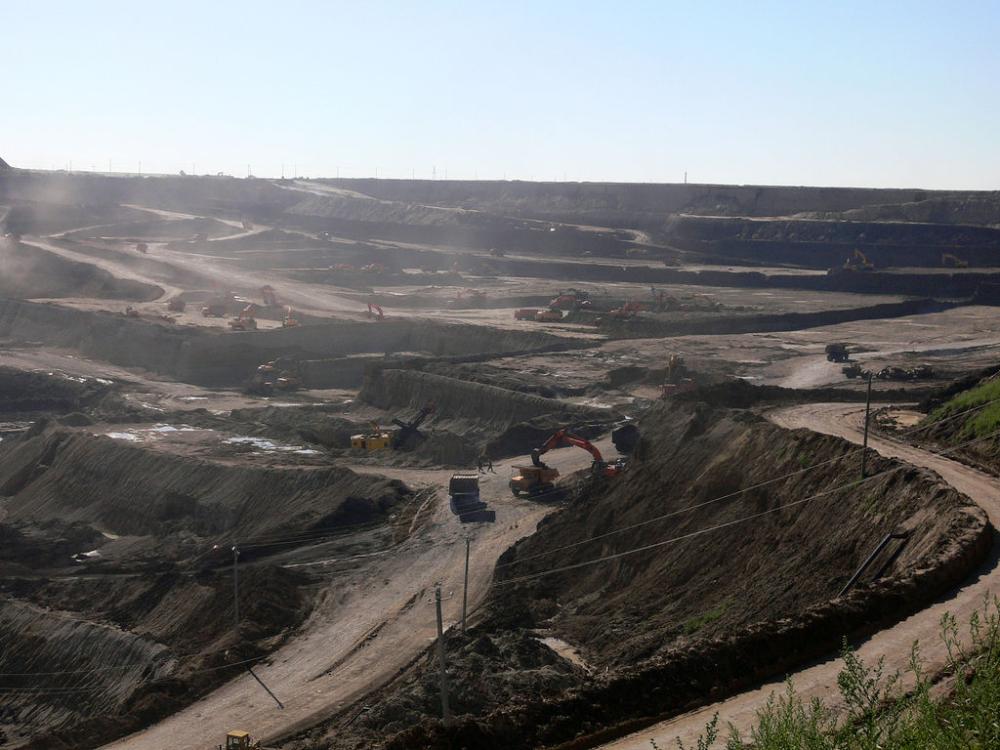Who is paying the price? The impact of low commodity prices on citizens in Mongolia
Blog

The Mongolian government has asked its citizens to “tighten their belts” amidst a looming economic crisis after registering a sharp drop in state revenues. With almost 90 percent of the Mongolian exports being mineral products, such as copper and coal, the ongoing fall in commodity prices on international markets has dealt a severe blow to the country’s economy. Adding to the matter, Mongolia’s currency has been devalued by almost 20 percent over the past 12 months.
This has led Mongolia to seek economic growth through legal reforms and especially using its most precious capital –natural resources- as a coping mechanism to fight the current economic crisis. Creating the right legal environment to promote economic growth makes logical sense but who is paying the price of such investor- friendly reforms?
The first target of the new investor-friendly policy was the environmental law, a law that Mongolians refer to as The Law with the Long Name, or in actuality The Law on Prohibition of Mineral Exploration and Mining Activities in areas in the Headwaters of Rivers, Protected Water Reservoir Zones and Forested Areas. This law aimed to protect water sources from mining activities by establishing safety zones defined by the Ministry of the Environment and Tourism in cooperation with the Mongolian Environmental Citizen’s Council, and approved by local authorities. These zones were established 200-1000 meters, which is beyond 200 meters limits of safety zone in the Water Law, and therefore protect 30% of the land around rivers and forests in Mongolia. After the law came into force in 2011, 242 mining companies that had been granted mining licenses had to suspend their operations.
With the new amendments, the safety zones are to be reduced to 50-200 meters from the riverbank rather than what was initially defined up in 2012, in effect making them irrelevant. Nobody can control the exact distance between a mining operation and the river. The water sources, a basis for future prosperity in the country, are threatened to be polluted and will likely be destroyed by future extractive operations. The amendments also enable mining operation in the forested areas with the condition to plant 10 or more seedlings for each harvested tree.
These amendments aimed to serve the interests of Canadian-listed mining company Centerra Gold that has not been able to develop its Gatsuurt gold mine due to the proximity to the Gatsuurt River and forested areas. To protect this law a group of civil society activists went on a hunger strike on the central square of Ulaanbaatar in front of the Parliament building. As a result of the 12 days strike, a working group was formed to assess the impact of Centerra’s mining project. But rather than work on bringing the Gatsuurt mine and the law into alignment, the government of Mongolia bypassed its own legal system by declaring Gatsuurt a so-called strategic mine exempt from the law.
While the Government of Mongolia rushed to sign the new contracts with Centerra Gold, another case came up. The negotiations with a three-party consortium, composed of China Shenhua Energy Co Ltd of China, Sumitomo Corporation of Japan, and Energy Resource LLC of Mongolia, as a strategic investor to Tavan Tolgoi – one of the world’s largest, untapped, coal deposit –quickly turned opaque and politicised. A draft agreement didn’t contain any provisions on protecting the interests of local people and the environment, and had no social impact provisions. The agreement looked like it had been drafted by companies without meaningful input from the government or its citizens. After strong public disapproval, the agreement was withdrawn and sent for further review.
Meanwhile, the Parliament is still dragging its feet with the adoption of a draft law on the Future Heritage Fund designed to save a certain percentage of revenues from mineral extraction in foreign assets to benefit future generations. The draft law was submitted to the Parliament on 13 October 2014. Discussions are still on-going and no clear deadline is in sight. As Erdenechimeg Dashdorj from PWYP Mongolia states:
“By the time the Parliament gets its act together and adopts the law, there might not be any revenues from extractive resources left to safeguard the future of our children and grandchildren.”
“These three cases have us wondering: who is paying the price for the governments’ decisions? Is it us citizens rather than private business interests?”, Erdenechimeg adds.
While heavily exploiting a country’s natural resources, do decisions makers really think of the future generations? What would next generations be left with if the country continued with their business as usual approach?
Countries such as Norway have proven that balanced and wise resource management can benefit everyone – citizens and businesses. So to ‘the powers that be’ in Mongolia, PWYP Mongolia asks: “instead of serving business interests, ignoring communities and neglecting the environment, ultimately increasing the resource curse, it is time to reverse this behaviour and serve the nation’s interest?”